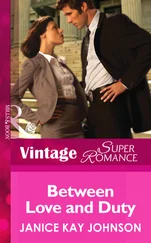Because he’d given her an unexpected accolade, shinier than any medal. You’re a better cop than he was. She’d spent a lifetime trying to measure up to her father. Better? She didn’t believe it. Couldn’t. The words warmed a cold place in her chest anyway.
But she also wanted to cry because her father was gone and she’d never have the chance to win his complete approval. Her eyes were tearing up because she’d discovered she wasn’t the only one who hated her father at the same time as she loved him.
And, damn it, she wanted to cry because she knew damn well that Diaz would never see her as a woman. Whatever he said, he didn’t imagine her out of uniform, legs tangling with his, mouth soft under his, voice sexy in the darkness. It wasn’t him—she didn’t care about him. But she wished desperately some man would notice that, cop or no, she was a woman, with a woman’s needs and vulnerabilities.
But she also knew that would never happen. Women had to advertise, and she didn’t know how. Or even if she really wanted to.
Because what if she discovered that beneath the pretense she was too soft to be a cop? It was who she was, her only identity!
Behind the wheel of her car, Ann looked at herself in the rearview mirror. Blue eyes, brows she knew were too thick, brunette hair drawn tightly back from a pale, severe face.
Who are you kidding? her inner voice jeered. You have to have a product to advertise. Why bother?
With a steady hand, Ann started her car. Well, wasn’t it lucky she hadn’t grown up wanting to play Barbies.
JUAN DIAZ was in a lousy mood.
For starters, he hated funerals. He saw too much death in its rawest form to be fooled by the ceremony and glorious hymns and grand words into thinking an gels had anything to do with man’s last moments.
Leroy Pearce had fallen off a ladder and broken his neck. His house was on a hillside. Apparently his ladder wasn’t tall enough to reach the gutters from the downhill side of his plunging lot. So, like an idiot, he’d wired two aluminum ladders together and climbed them, unsteady as they must have been. As bulky as Leroy was, you’d have expected the wire to fail, but it hadn’t. Instead, he’d leaned too far or shifted his weight wrong, and the ladders, still rigged together, had fallen outward, crashing at last far down the brushy canyonside.
Leroy would have had plenty of time on the way down to know he was going to die. His skull had been crushed when he hit a tree.
Death was not pretty, and despite his Catholic up-bringing, Diaz doubted God had had anything to do with the time or occasion.
He had also spent the entire graveside service trying to keep an eye on Caldwell. An echo of her father’s, this funeral had to be dragging grief to the surface even if she’d tried tying cement blocks to it to keep it buried deep. He knew her well enough to be sure she wouldn’t burst into noisy sobs. He also knew she’d refuse to acknowledge feeling any upsurge of sadness. Ann Caldwell had spent the winter trying to convince him that she was as hard as her old man. He hoped she was lying to both of them.
Today, her face might have twitched a few times when the preacher talked about grief; could be she’d blinked more than normal. But when she’d walked up to him and Pearce’s daughter afterward, her eyes were dry. She’d surprised him, though, with her admission that she’d had mixed feelings about her father. He’d seemed to loom so large in her world, Diaz was sometimes tempted to turn on his flashlight to find his way through the gloom of Sgt. Michael Caldwell’s shadow.
Diaz was pissed by her attitude, too, her assumption that she constantly had to scramble to measure up. She was a good cop; she’d won awards, and risen to detective at record speed. Maybe she believed all good things had happened because of her name, not her own competence. Who the hell knew why she had such a chip on her shoulder?
He and Ann had had a few rough patches their first month together. She’d inherited from her father an obsessive determination to see a man named Craig Lofgren behind bars for murdering his wife despite the fact that her body had never been found. The whole thing had made Diaz uneasy. With no new evidence, there had been no justification for reopening the case, but her father had been unable to let it go and she’d seemed to feel a sacred duty to finish what he couldn’t.
Well, she’d done that without much help from Diaz, and Daddy wouldn’t have been happy, given the way he’d frothed at the mouth at the mere mention of Lofgren, a well-to-do airline pilot. Ann Caldwell had found the missing wife—alive and seemingly oblivious to the turbulence left in the wake of her disappearance. By careful, solid police work, she’d cleared Lofgren’s name.
She didn’t want to talk about the fact that Craig Lofgren never would have been under suspicion if her father had conducted an investigation anywhere as careful and impartial as hers.
“We all make mistakes,” was all she’d say.
Ignoring witnesses and evidence that didn’t fit your theory wasn’t making a mistake, in Diaz’s book. Every cop had prejudices. Keeping them on a short leash was part of the job.
Diaz had worked with a woman partner before. He’d been sorry when Melanie Najjar had decided during her second pregnancy that she wasn’t coming back to work. Maybe because she was married he’d been able to damn near forget she was a woman. It was funny, too, because Najjar had been considerably more feminine than Ann Caldwell. Petite, fiery, with a taste for bold colors in makeup and everything else. Perps sometimes surrendered just for the charge of being cuffed by her.
In six months of working with Caldwell, Diaz hadn’t forgotten for a single minute that she was a woman. Most of the time the knowledge didn’t get in the way. It was just there, a tiny irritant like a piece of grit in his sock or the twinge of a sore muscle. The kind of thing he could ignore, all the while knowing he was ignoring it.
He wouldn’t say he was attracted to her. How could he be, as plain as she managed to make herself despite vivid blue eyes, milk-white skin and hair the color of just-brewed coffee? She was either stocky or wore clothes that made her look that way, walked and talked like a man, refused to wear even a hint of lipstick and kept her hair drawn back so tightly he had no idea whether it was thin or thick. A man could pretty well assume she didn’t want anyone to be attracted to her.
She wasn’t his type, anyway. He wasn’t interested in marrying again. Cops weren’t good at ever after. Their wives—or husbands—started noticing they never seemed to make it home for dinner. When they were home in body, they tended not to be in spirit: they were too busy brooding over the mysteries of why people did the cruel or stupid things they did to notice that little Elena had hung a new picture she’d painted in kindergarten on the fridge and was eagerly waiting for Daddy to notice.
He’d been a crappy husband and an inadequate father. He didn’t watch reruns of failed TV shows, and he wasn’t going to act in his own.
Which meant he confined himself to women who wouldn’t want or expect a marriage proposal down the line. Pretty women out for a good time, cynical women who wanted dinner table conversation, good sex and no whiskers left in their bathroom sink.
Repressed, complicated women who didn’t know the meaning of a good time were off-limits. So, although he felt that irritating twinge now and again, like when he glanced at her beside him in the car and noticed the pure line of her throat or the delicacy of her cheekbones, or when she got ticked at him and her eyes flashed blue, or when she turned so that he couldn’t avoid noticing how full-breasted she was… Damn it, when he felt anything at all toward Ann Caldwell that had a sexual connotation, Diaz ignored it. And he intended to keep ignoring it.
Читать дальше












